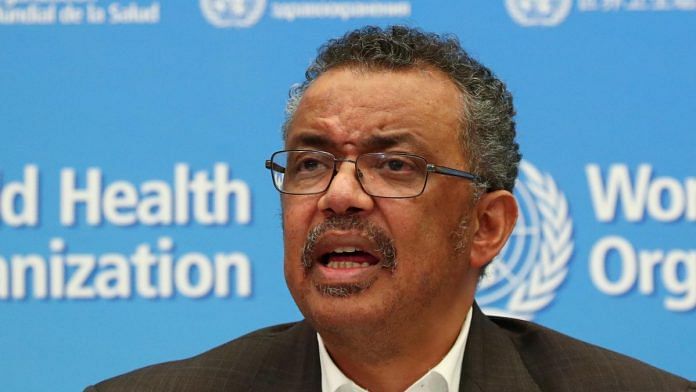New Delhi: The World Health Organisation (WHO) may have clarified that anyone, regardless of their sexual orientation, who comes in close contact with a person who has monkeypox is at risk of contracting the disease. But LGBTQ activists say the clarification is “too little too late” after no less than the WHO chief himself linked the disease to gay men who have sex with multiple partners.
Last week, WHO Director-General Dr Tedros Adhanom Ghebreyesus had said: “For men who have sex with men, this includes, for the moment, reducing your number of sexual partners, reconsidering sex with new partners, and exchanging contact details with any new partners to enable follow-up if needed.”
On Monday, the global health body clarified: “It is important to note that the risk of monkeypox is not limited to men who have sex with men. Anyone who has close contact with someone who is infectious is at risk.”
LGBTQ activist Yadavendra Singh told ThePrint that it was “very unfortunate that the WHO DG linked monkeypox to multiple gay sexual partners”.
“Although WHO has retracted the statement, it’s too little, too late,” he added.
Coming from a UN body, such statements, he further said, “stigmatise certain communities without understanding the socioeconomic vulnerabilities of gay and bisexual men”.
Ghebreyesus’ statement doesn’t take into account the legal systems of different countries, said the activist. “In India, gay men don’t have many of the rights other citizens do. They can’t marry, they can’t have a family. For WHO to say limit sexual partners without understanding these realities, is very unfortunate.”
Union Health Minister Mansukh Mandaviya told Rajya Sabha Tuesday that India had reported eight cases of monkeypox so far.
Also Read: Monkeypox strain detected in India not linked to European outbreak, suggests ICMR data
‘Stop promoting stigma’
Alliance India, a non-governmental organsiation working on HIV and the rights of patients living with the disease in India, said in a statement Monday that the WHO chief’s statement could lead to “multiple wrong interpretations and increased stigma and discrimination”.
“WHO hasn’t considered social determinants of health for gay and bisexual men, like stigma and discrimination, bullying in the education system, pressure to marry a female partner, and discrimination in the workplace,” said the NGO.
It further said that rather than holding governments accountable and suggesting they ensure reducing all kinds of stigma and discrimination, the WHO has taken the easy route of calling gay and bisexual men to reduce partners.
The organisation urged the WHO to “stop promoting stigma and discrimination against gay and bisexual men”.
Several activists agreed that instead of recognising the reality of the various social determinants of the health of gay and bisexual men and addressing the inequities, WHO has chosen the easier option of shifting the blame.
According to WHO, social determinants of health (SDH) are the non-medical factors — such as the conditions in which people are born, grow, work, live, and age, and the wider set of forces and systems shaping the conditions of daily life — that influence health.
Activist Rajiv Dua said that the WHO spoke about reducing partners without either understanding or addressing the social determinants of health that lead gay and bisexual men to have multiple sexual partners.
“It is easy to talk about behavioural change without getting into the depths of why those behaviours occur in the first place,” Dua said. “Who wants to die? We all want to live. But the fact is that there is a social stigma that limits free access to healthcare.”
Dua said there was no law to protect gay men in India. “Gay men cannot marry; often there is pressure to marry a woman. There are no laws to protect them. Decriminalisation of an act does not automatically guarantee rights or prevent discrimination.”
He added that the WHO’s first reaction, “much like what happened at the start of the AIDS epidemic, has been to blame the population and not to go to the roots and hold governments accountable, to ensure free access to quality healthcare for all LGBTQ people”.
This copy has been updated to correct the name of an activist, Rajiv Dua. The error is regretted.
(Edited by Uttara Ramaswamy)
Also Read: What is monkeypox — disease usually found in Africa forests now detected in Europe, America



